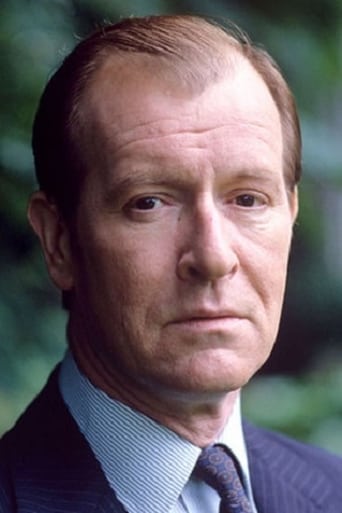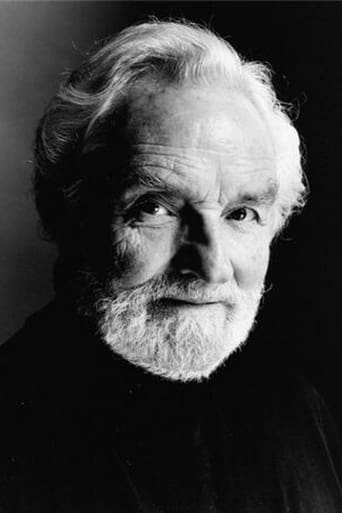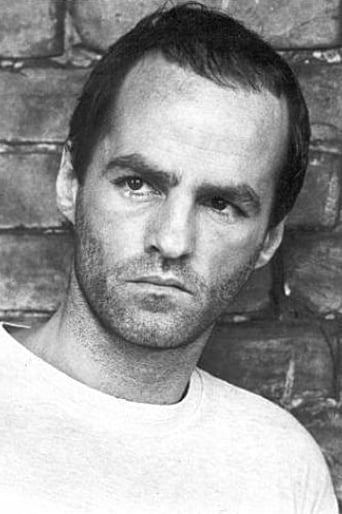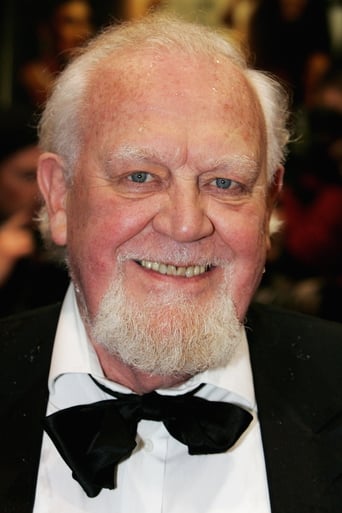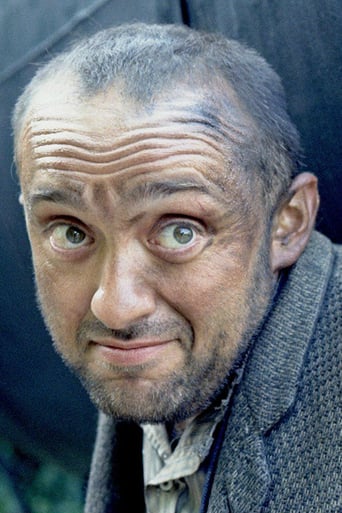Matrixston
Wow! Such a good movie.
Claysaba
Excellent, Without a doubt!!
Spidersecu
Don't Believe the Hype
Manthast
Absolutely amazing
vstb
This performance of Coriolanus is a miraculous work of art.It is superb from beginning to end but 3 scenes stand out;Coriolanus' farewell to his wife and mother - Coriolanus' first meeting with Aufidius - The death of Coriolanus.In the death scene the Director has ignored Shakespeare's explicit stage directions and introduced some ambiguity. Is Coriolanus saying,"kill" to spur himself on or is he urging Aufidius to kill him? Leaving open the possibility that Coriolanus felt he deserved to die for giving in to pity is a brilliant touch and deepens the sense of tragedy. The cast is extremely impressive. They all had a clear comprehension of the meaning and significance of everything they did and said. They did not merely act but lived their parts.This performance moved me to tears. Shakespeare has never done that to me before. I wish Nietzsche could have seen this performance.Some critics say that The Tragedy of Coriolanus is not as good as Shakespeare's other tragedies because they do not understand Coriolanus' motivations due to the lack of soliloquies from him. I am sure Shakespeare understood that this play would appeal to only a few. Those few would not need soliloquies because they would know that Coriolanus was thinking what they think and suffering what they suffer.Coriolanus is Hamlet in another time and place. Coriolanus and Hamlet are the greatest plays ever written. I have never seen a truly great performance of Hamlet but at least I have now seen a truly great performance of Coriolanus.
Dr Jacques COULARDEAU
This tragedy is world famous and among Shakespeare's is one of the deepest and most political. It deals with the social classes of Rome in those old days. The people are the free Romans who are not nobles or generals. These plebeians have representatives next to the Senate, the tribunes, elected by them. The Senate is elected too but by the nobility and patricians. At the time of Coriolanus the Tribunes had some kind of veto right on decisions and especially on appointments. The situation is difficult. The war was won in extremis by Coriolanus, the son of a noble family. The Senate wants to make him Consul but he refuses to bow down in front of the tribunes and the plebeians and is banished by them. He at once joins his previous enemy, whom he had defeated and is of course leading his army to the gates of Rome. But his banishment shows the absurdity of a political system based on democracy, on leaders elected by the people. The leaders to be elected or accepted have to flatter the people and that is the worst possible situation. The people do not want to hear the truth when there is a difficulty, and they do not want to share the decisions then. They are led by their desire to be flattered to absurd decisions that may lead the whole country to a catastrophe, to a standstill or to a complete collapse. The flattery the leaders are using is immoral in many ways but is it the only way? Unluckily it is except if you manage to side-track these plebeians and to have majority of people with you on the side of a realistic policy. That is the deepest evil of democracy.Then we are confronted to vengeance in politics. It is the second worst motivation. It leads to deaf and dumb positions and attitudes that may make you a traitor in a situation similar to that of Rome which was not a popular democracy but a feudal democracy based on a slave state. The great advantage of democracy is that you can always try to get your revenge in the elections, whereas in the Roman situation revenge meant sedition, treason, betrayal, physical destruction of all and everything that had opposed you. Strangely enough this makes the situation even less sure and less stable because then the "traitor" is under pressure from his friends, his family, his relatives not to complete his vengeance and destroy the city or country that used to be his own, and along with it his own parents, wife, children, etc.This play is marvelous because of some extraordinary scenes. The scene about the "absolute shall" is a prodigy, a miracle.« SICINIUS: It is a mind That shall remain a poison where it is, Not poison any further. CORIOLANUS: Shall remain! Hear you this Triton of the minnows? mark you His absolute 'shall'? COMINIUS: 'Twas from the canon. CORIOLANUS: 'Shall'! O good but most unwise patricians! why, You grave but reckless senators, have you thus Given Hydra here to choose an officer, That with his peremptory 'shall,' being but The horn and noise o' the monster's, wants not spirit To say he'll turn your current in a ditch, And make your channel his? If he have power Then vail your ignorance; if none, awake Your dangerous lenity. If you are learn'd, Be not as common fools; if you are not, Let them have cushions by you. You are plebeians, If they be senators: and they are no less, When, both your voices blended, the great'st taste Most palates theirs. They choose their magistrate, And such a one as he, who puts his 'shall,' His popular 'shall' against a graver bench Than ever frown in Greece. By Jove himself! It makes the consuls base: and my soul aches To know, when two authorities are up, Neither supreme, how soon confusion May enter 'twixt the gap of both and take The one by the other. » But the tragedy goes a long way beyond that scorn and condescendence. It shows the other phenomenal scene of the mother, the wife, the virginal temple servant and the son pleading for mercy and peace. Poignant, and all the more so because we know that this never happens and that in such situations only hatred dominates and triumphs, be it only in the name of military efficiency. But the scene is brilliant and brilliantly acted by an admirable actress. And the triumph of that mother coming back into Rome with the peace promised by her son is quite noble and impressive. But Shakespeare pushes slightly further his political reasoning.Corialanus was the victorious general of Coriali. He was betrayed by some rabble, some populace who used or were used by their tribunes to get their way. A mistake that disturbed the fabric of history. Then Coriolanus becomes a traitor as a result. He is brought back to his senses by his mother but then he betrays the military pact he had agreed on with his ex-enemy and that disturbs again the fabric of history. Hence it has to be rectified and it is done by the hand of Coriolanus' ex-enemy, on the day when he brings a peace treaty and his sword as a token of that peace. And this ex-enemy kills Coriolanus with Coriolanus' own weapon. The rectification is total. A great pleasure to see such a great production.Dr Jacques COULARDEAU, University Paris 1 Pantheon Sorbonne, University Paris 8 Saint Denis, University Paris 12 Créteil, CEGID
holt-lover
I don't want to be too critical of this, since it is the only available version of this play. Alan Howard does a great job in the title role, making you believe in his character, and all of the other actors do great jobs too. Of course, then there's the problem all of the BBC productions had with this cycle: the production never put in the money to make these plays seem like real films, something Olivier or Brannagh would make, so you get pretty dull sets and very little music, and of course no breathtaking battles or sword fights. Still, that's not the fault of this movie, and like I said, I'm thankful at least one version exists. The DVD comes with subtitles or you can follow along with the text if you're unfamiliar with the play like I was. It's worth checking out if you get the chance.
tonstant viewer
Coriolanus is the most problematic of Shakespeare's tragedies.Hamlet, Macbeth, Othello and Lear keep us posted as to their internal states in extended soliloquies. However, Coriolanus is a proud soldier who loves his mother and is totally useless in any other context. What goes on inside his head is either shallow, wrong or just plain uncommunicative. As a result, it is much more difficult than usual to understand what is happening, and to evaluate our own response to it.Alan Howard brings his verbal precision and ready sneer to the difficult title part. No one's lip curls downwards more eagerly than his, but you may get confused as to how you feel about the progress of his downfall. Irene Worth works well with the camera in making her presence count as his mother, Volumnia.The rest of the cast boasts some real vocal splendor - Joss Ackland, Anthony Pedley, Valentine Dyall all rumble away magnificently, and the normally resonant Leon Lissek dries his voice out for contrast (unlike, say, his performance in "Shogun.") Mike Gwilym is perhaps a little too young for Coriolanus's arch-enemy Aufidias, but he acquits himself well enough. The homoerotic element of the Coriolanus-Aufidias relationship is fully justified by the text, but exactly how explicitly it should be shown is a subject for endless debate. It is worth pointing out, however, that the final chorus of "Kill! Kill! Kill!" is here reduced to a duet, with the crowd silent and only the two of them shouting in a kind of macho Liebestod.The real problem with this video is a word beginning with "C," but it's not Coriolanus, it's Caravaggio. Director Elijah Moshinsky's key to the whole production is Caravaggio's paintings, much as Vermeer is to his "All's Well That Ends Well." Unfortunately, the melodramatic ripeness of Caravaggio's lighting seem not to blend well with the conceptual austerity of most of the conflicts in the text. So two artistic experiences play out simultaneously in parallel, but according to more than one viewer, the twain never meet."Coriolanus" is, among other things, a play about class. Unfortunately, the costumes of the period chosen here do not always indicate instantly the class of the wearer, and in the prevailing gloom, wholly black costumes don't always register. We shouldn't have to decode these things - they should be obvious and unobtrusive.The editing is also a problem. Under the director's supervision, scenes often end abruptly and cut directly to the next, producing not the desired impression of speed, but irritation in the viewer. Sometimes we are staring at a reaction shot, when the reaction is not at all informative and we'd be better off watching the face of the speaker.Perhaps part of the cause is the compressed production schedule, but some editorial rhythms seem clumsy, and that's not characteristic of the BBC's house style - occasionally somnolent, perhaps, but never clumsy.In sum, the production is not bad, but does not make the case for bringing the play out of obscurity as Shakespeare's least honored tragedy. Mr. T. S. Eliot insisted that "Coriolanus" is a better play than "Hamlet." This video does nothing to force us to agree with him.
